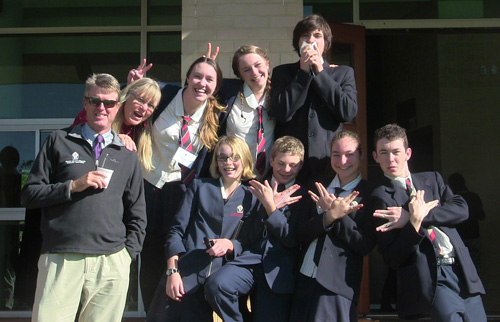
Your complimentary articles
You’ve read one of your four complimentary articles for this month.
You can read four articles free per month. To have complete access to the thousands of philosophy articles on this site, please
News
News: September/October 2014
Terror group labels philosophy “ungodly” • Hawking warns of end of universe • Ethics panel debates ebola response — News reports by Sue Roberts, Anja Steinbauer and Matthew Wills
Terror Group Bans Philosophy
The Islamic State (IS) has banned the teaching of philosophy and chemistry in schools in the northern Syrian city of al-Raqa, according to the Syrian Observatory for Human Rights (SOHR). The IS asked teachers and school directors to “prepare an Islamic education system in the schools of al-Raqa”, to be reviewed by a board of education formed by the IS itself. According to SOHR the ‘Islamic experts’ belonging to the IS decided to exclude chemistry and philosophy from the educational programme because “they do not fit in with the laws of God.”
The Ethics of Fighting Ebola
An ethics panel has been meeting at the World Health Organization to thrash out the pros and cons of making untested experimental drugs more widely available to Ebola victims. The panel of twelve doctors and ethicists have to take into account standard considerations of medical ethics such as informed consent, but also be sensitive to the implications of importing Western values into a different cultural setting. This includes anticipating what might happen if a drug is introduced and proves ineffective or even harmful; how the media and the local community will react; the consequences of this reaction for victims and healthcare workers, and how the selection of candidate drugs should take place.
Beware of the God Particle!
In his preface to a new book, Starmus, Stephen Hawking warns that a Higgs boson at sufficiently high energies could become unstable and destroy the entire universe. At energies above 100 billion GeV, “the universe could undergo catastrophic vacuum decay, with a bubble of the true vacuum expanding at the speed of light. This could happen at any time and we wouldn’t see it coming.” He adds, comfortingly, that a particle accelerator capable of imparting such energy would be bigger than the Earth “and is unlikely to be funded in the present economic climate.”
Australasian Philosothon
The 2014 FAPSA Australasian Philosothon was held at Hale School in Perth over three days in July. The overall winners were the team from North Sydney Girls High School in New South Wales. The runners up were the team from Hale School itself, with Ballarat Grammar School from Victoria in third place. The questions they debated included: ‘Should athletes be allowed to use genetic enhancement to improve their performance?’ ‘Do we have souls?’ ‘Should some scientific research be censored?’ And: ‘What are the limits of expression in a civilized society?’
Hale School started the Philosothon back in 2007 and since then it has grown prolifically throughout Australia and overseas. Australasian Philosothons have been conducted annually since 2011. The first UK Philosothon was held this year at King’s College in Taunton.
More than 100 students from 13 schools in New South Wales, Victoria, Queensland, South Australia and Western Australia participated in the event. Each participating school had been placed in the top three schools in their respective state Philosothons. Internationally renowned guest speakers participated in the event including Professor John Kleinig (John Jay College of Criminal Justice New York) who addressed the topic ‘Drones, Distance, and Death’ and Professor Tziporah Kasachkoff (Ben Gurion University) who spoke on the topic ‘Socrates exhorts us to follow the argument where it leads. Should we?’ Assoc. Professor Phil Cam from the University of NSW, who is Chair of the Federation of Australasian Philosophy in Schools Associations, was also a guest speaker and judge at the event.
At the end of the third day prizes were awarded to the winning schools and to the best students in each year group. The Australasian Association for Philosophy sponsored prizes for Most Promising Female Philosopher (won by Edwina Stephenson of North Sydney Girls HS) and Most Promising Male Philosopher (won by Matthew Blacker of Hale School).
This is the first time a NSW school has achieved first place in the Australasian Philosothon and the first time a non-private school has won the event. It appears that the girls’ schools are well and truly entrenched on the winner’s podium; the 2013 Philosothon was won by Raffles Girls School from Singapore.
Matthew Wills, Hale School, Co-ordinator of Philosophy and Ethics, Philosothon Founder and co-ordinator

A group of Philosothonians









